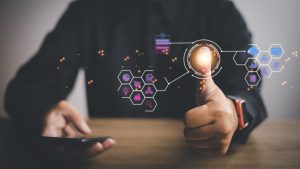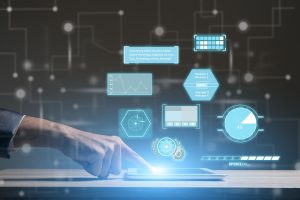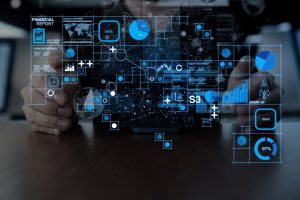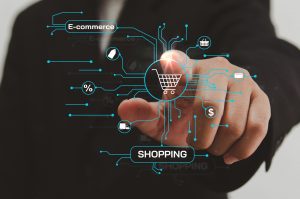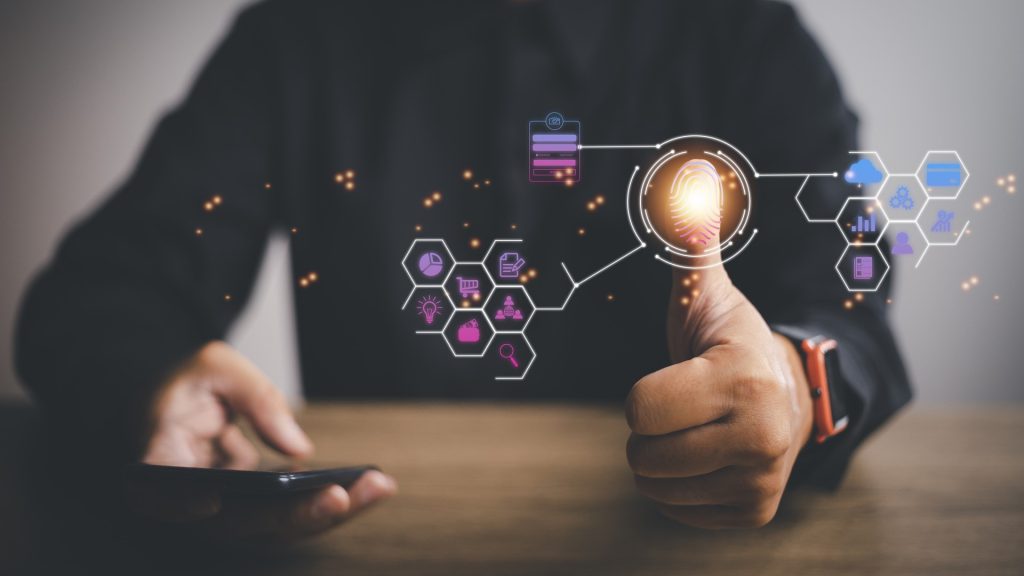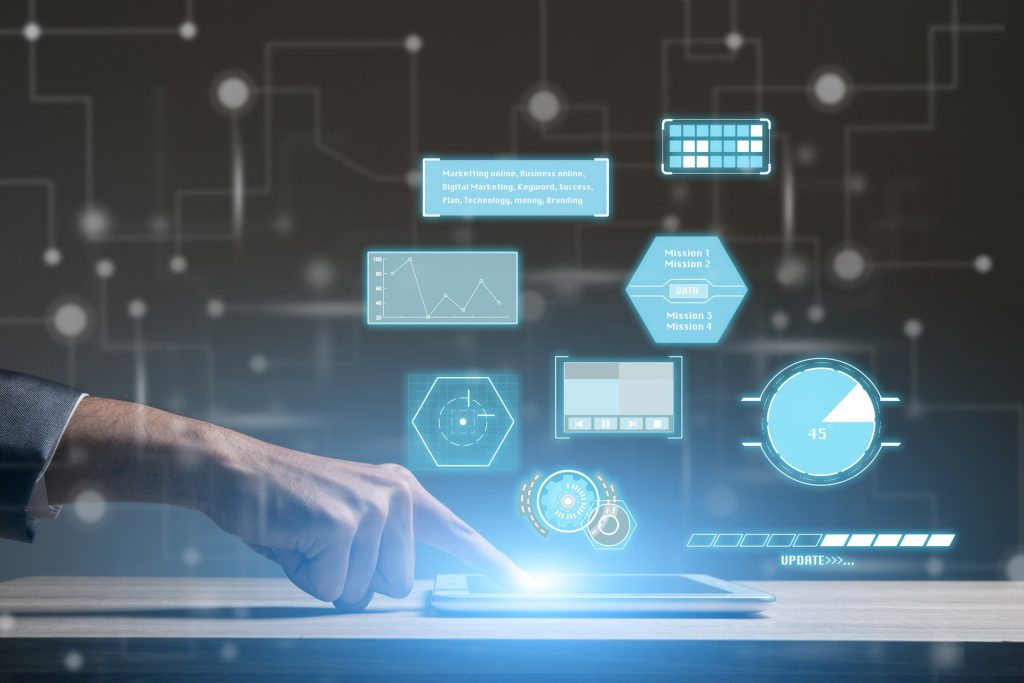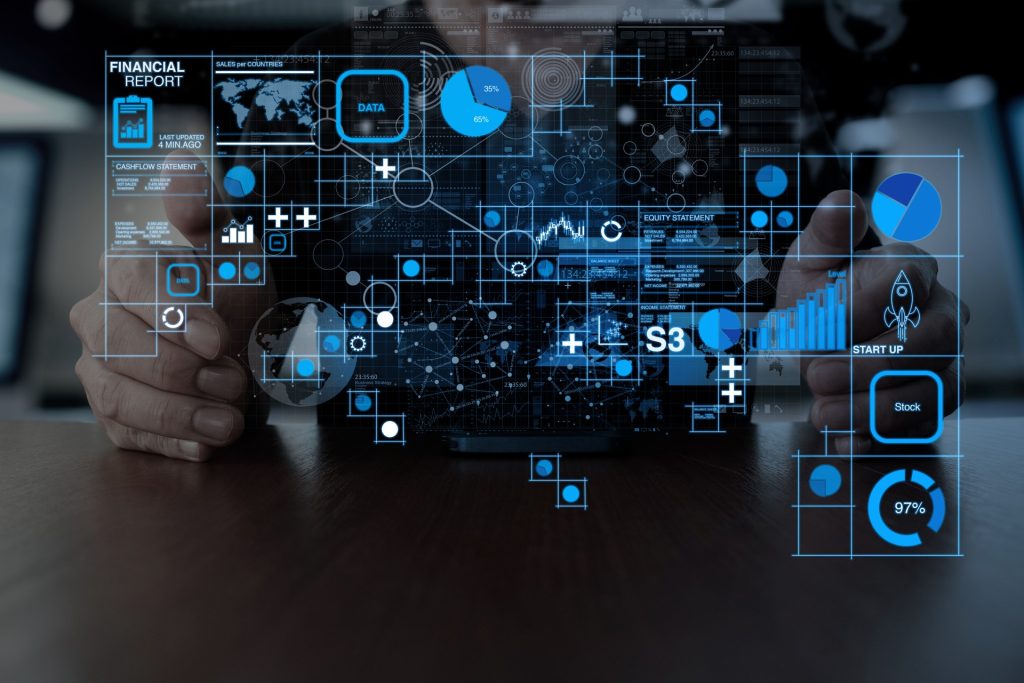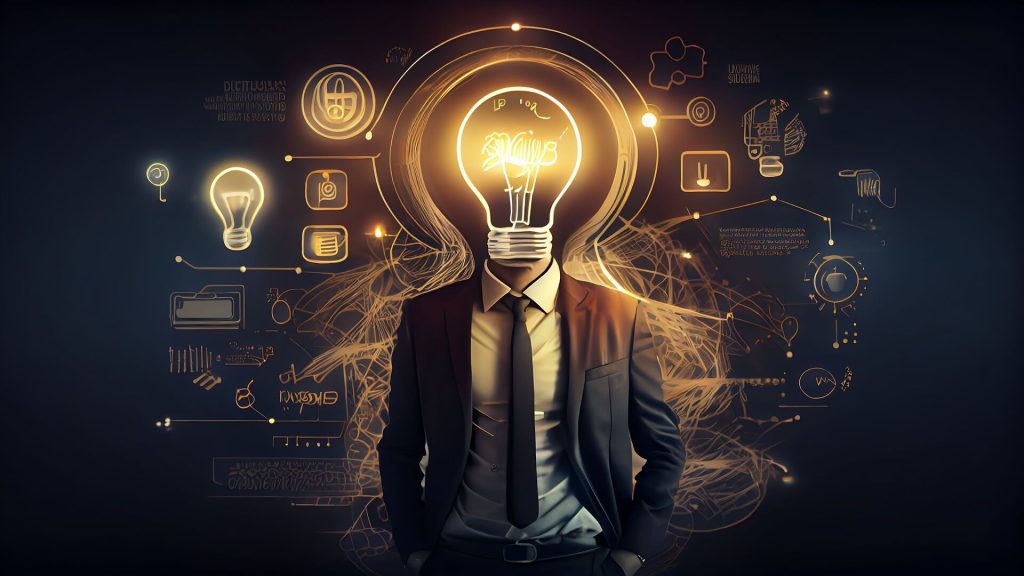Introduction
In today’s dynamic and fiercely competitive global marketplace, businesses are constantly challenged to stay ahead of the curve. In this relentless pursuit of excellence, innovation, and technology adoption, particularly within the realm of technology foundations, have emerged as indispensable strategies. Among the myriad of technological advancements, three stand out as pivotal drivers of competitiveness: Artificial Intelligence (AI), blockchain, and the Internet of Things (IoT). These transformative technologies are not merely buzzwords but catalysts for profound change, reshaping industries and redefining traditional business paradigms.
As businesses navigate the intricate landscape of the 21st century, the strategic integration of AI, blockchain, and IoT has become imperative for survival and success. AI, with its ability to analyze vast datasets and derive actionable insights, empowers organizations to make informed decisions with unprecedented speed and accuracy. Blockchain, on the other hand, revolutionizes the way transactions are recorded and verified, fostering transparency, security, and trust in an increasingly digitized world. Meanwhile, IoT connects devices and systems, ushering in a new era of operational efficiency and predictive capabilities.
This article embarks on a comprehensive exploration of how these emerging technologies are not only shaping the present but also shaping the future of global business competitiveness. Through in-depth analysis and real-world case studies, we delve into the tangible impact of AI, blockchain, and IoT on diverse industries, uncovering how forward-thinking companies leverage these technologies to gain a competitive edge.
Furthermore, we peer into the horizon to discern the future trends that will continue to influence competitiveness in the global arena, anchored upon technology foundations. From AI-powered personalization to blockchain’s expansion beyond finance, and from the IoT’s integration into smart cities to the advent of 5G-enabled smart manufacturing, the possibilities are boundless. By understanding and embracing these trends, businesses can position themselves at the forefront of innovation, driving sustainable growth and resilience in an ever-evolving marketplace.
AI: Transforming Business Operations
Artificial Intelligence (AI) stands as a cornerstone in the modern landscape of business operations, where its multifaceted capabilities span far beyond mere automation. It has transcended its initial role to become a transformative force, offering a spectrum of functionalities ranging from predictive analytics to delivering deeply personalized customer experiences. Within the intricate fabric of contemporary enterprises, AI algorithms serve as invaluable assets, wielding the power to sift through colossal datasets, distilling meaningful insights, and driving informed decision-making at lightning speed.
In practical terms, this translates to a paradigm shift in how businesses operate and engage with their clientele. Take, for instance, the case of Netflix, a trailblazer in leveraging AI-powered recommendation algorithms to reshape user interactions within the streaming industry. Through sophisticated data analysis, Netflix not only predicts user preferences but also tailors content recommendations with remarkable precision. This level of personalized engagement not only fosters user satisfaction but also cultivates loyalty, cementing Netflix’s position as a frontrunner in the fiercely competitive streaming landscape. Such innovative utilization of AI exemplifies how businesses can harness the transformative potential of this technology to gain a decisive edge in their respective markets.
Blockchain: Revolutionizing Security and Transparency
The advent of blockchain technology has ushered in a new era of security and transparency across a myriad of industries, marking a paradigm shift in the way businesses operate and interact with their stakeholders, grounded in technology foundations. At its core, blockchain is not merely a technological innovation; it is a transformative force, underpinned by its decentralized and immutable ledger system. This revolutionary architecture instills unparalleled levels of trust and authenticity, serving as the bedrock for gaining a competitive advantage in today’s fiercely contested marketplace.
Consider the case of retail giant Walmart, which has embraced blockchain to reimagine its supply chain management practices. By leveraging blockchain’s inherent transparency and traceability features, Walmart can meticulously track the journey of products from their inception to the end consumer. This granular visibility not only serves as a deterrent to fraud and counterfeit products but also ensures uncompromised quality and safety standards throughout the supply chain.
Furthermore, the transparency afforded by blockchain technology has far-reaching implications for customer trust and brand reputation. In an age where consumers demand accountability and ethical sourcing practices, companies that embrace blockchain can differentiate themselves by offering unparalleled transparency in their operations. This transparency not only fosters consumer confidence but also enhances competitiveness by positioning the company as a trusted and responsible steward of their products and services.
In essence, blockchain’s revolutionary impact extends beyond mere technological innovation; it represents a seismic shift in how businesses cultivate trust, ensure authenticity, and gain a competitive edge in an increasingly interconnected global economy. By harnessing the transformative power of blockchain, companies can navigate the complexities of the modern marketplace with confidence, integrity, and resilience.
IoT: Catalyzing Operational Efficiency
The Internet of Things (IoT) has emerged as a transformative force, reshaping the landscape of modern business operations by seamlessly interconnecting devices and systems, grounded in technology foundations. This interconnected network empowers businesses to not only optimize their operations but also elevate productivity to unprecedented levels. At the heart of this revolution are IoT sensors, which serve as the eyes and ears of the digital ecosystem, tirelessly collecting real-time data on various facets of business operations.
Consider the aerospace industry, where the implementation of IoT sensors has revolutionized maintenance practices and operational efficiency. Companies like General Electric have harnessed the power of IoT sensors to monitor the performance of aircraft engines in real-time. By continuously collecting and analyzing data on parameters such as temperature, pressure, and vibration, these sensors enable predictive maintenance strategies that preemptively identify potential issues before they escalate into costly failures.
For instance, by detecting early signs of wear and tear or impending malfunctions, IoT sensors facilitate timely intervention, minimizing downtime and maximizing operational uptime. This proactive approach not only enhances safety and reliability but also translates into tangible cost savings for airlines and aircraft manufacturers alike.
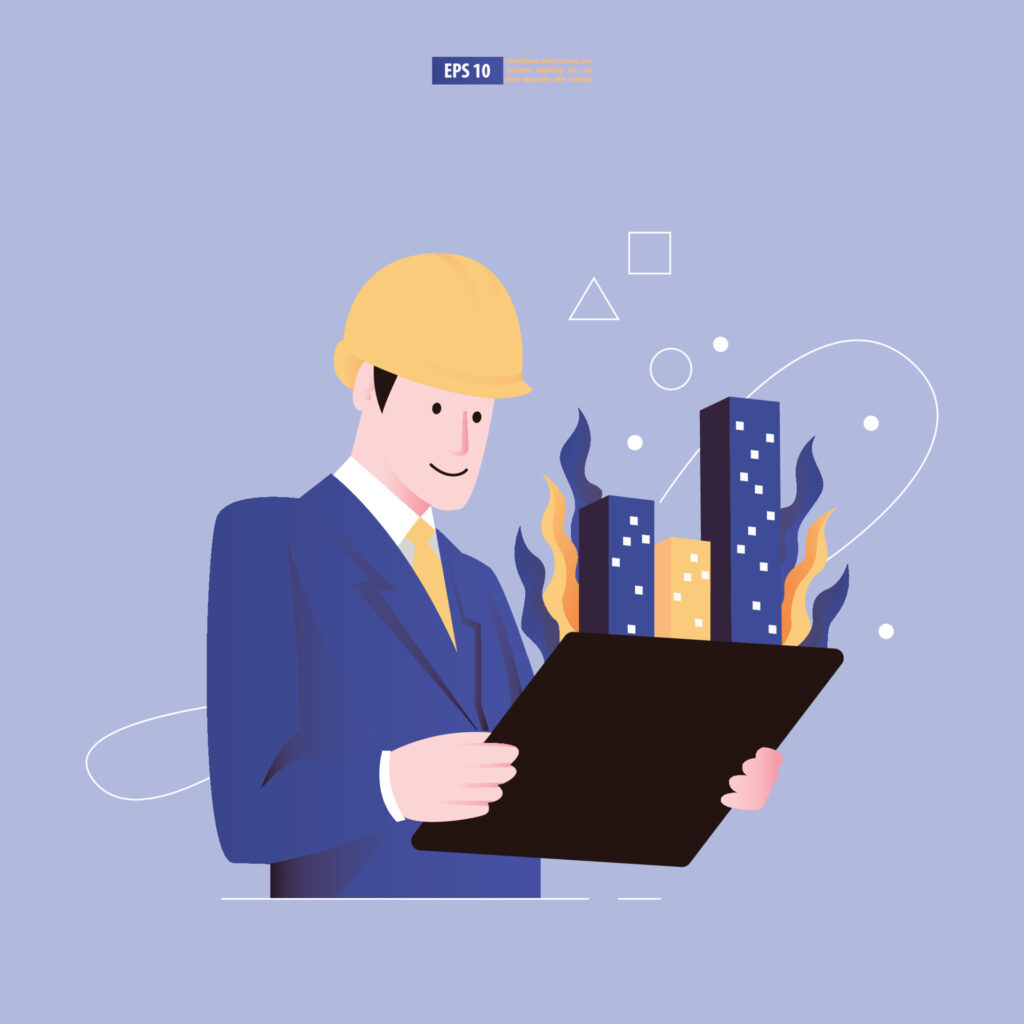
Wide-Reaching Impact
Moreover, the benefits of IoT extend beyond the aerospace sector, permeating industries ranging from manufacturing and logistics to healthcare and agriculture, all underpinned by technology foundations. In manufacturing, IoT-enabled predictive maintenance ensures seamless production processes, while in logistics, real-time tracking and monitoring optimize supply chain efficiency. Similarly, in healthcare, IoT devices enhance patient monitoring and enable remote diagnostics, while in agriculture, precision farming techniques driven by IoT sensors optimize resource utilization and maximize crop yields.
In essence, the transformative potential of IoT lies in its ability to catalyze operational efficiency across diverse industries, enabling businesses to stay ahead of the curve in an increasingly competitive landscape. By embracing IoT solutions, companies not only gain a competitive edge through improved performance and cost savings but also pave the way for a more connected, efficient, and sustainable future.
Case Studies: Real-World Applications
AI in Healthcare
In the realm of healthcare, the integration of Artificial Intelligence (AI) has ushered in a new era of personalized and proactive patient care. IBM’s Watson Health stands at the forefront of this revolution, leveraging AI algorithms to analyze vast repositories of patient data with unprecedented speed and accuracy. By scrutinizing medical records, genetic information, and diagnostic imaging results, Watson Health can discern subtle patterns and correlations that might elude human clinicians. This nuanced understanding enables healthcare providers to identify health risks at an early stage, formulate tailored treatment plans, and deliver personalized interventions that optimize patient outcomes. From early detection of diseases to precision medicine approaches, AI-driven healthcare solutions hold the promise of transforming the patient experience and elevating the standard of care to new heights.
Blockchain in Supply Chain Management
Supply chain management is a complex and multifaceted process, fraught with challenges ranging from inventory management to regulatory compliance, all within the realm of technology foundations. In this context, blockchain technology has emerged as a game-changer, offering unparalleled transparency, traceability, and security throughout the supply chain. Maersk, a global leader in shipping and logistics, has embraced blockchain to revolutionize its supply chain management practices. By digitizing the entire supply chain on a decentralized ledger, Maersk ensures that every transaction, from the manufacturer to the end consumer, is transparent and immutable. This level of transparency not only enhances operational efficiency but also mitigates the risk of fraud, counterfeit products, and supply chain disruptions. As a result, Maersk has realized significant cost savings, streamlined logistics operations, and elevated customer satisfaction levels, setting a new standard for excellence in supply chain management.
IoT in Agriculture
The agriculture industry is no stranger to technological innovation, and the Internet of Things (IoT) has emerged as a transformative force in modern farming practices, firmly rooted in technology foundations. John Deere, a pioneer in agricultural machinery, has harnessed the power of IoT to equip its tractors with a myriad of sensors and monitoring devices. These IoT-enabled tractors serve as intelligent agronomic assistants, continuously monitoring soil conditions, weather patterns, and crop health metrics in real-time. By collecting and analyzing this wealth of data, farmers can make data-driven decisions regarding irrigation schedules, fertilizer applications, and pest management strategies. This precision agriculture approach not only maximizes crop yields but also minimizes resource wastage, leading to greater sustainability and profitability for farmers. In essence, IoT-enabled agriculture represents a paradigm shift in farming practices, where technology and data converge to optimize productivity and ensure food security for future generations.
Future Trends Shaping Competitiveness
AI-Powered Personalization
The evolution of Artificial Intelligence (AI) algorithms heralds a new era of hyper-personalization, where businesses can tailor products and services to individual preferences with unprecedented precision. As AI technologies continue to advance, they empower businesses to delve deeper into customer data, discerning nuanced patterns and preferences that were previously inaccessible. By leveraging these insights, businesses can craft personalized experiences that resonate on a deeply individual level, fostering unparalleled levels of customer satisfaction and loyalty. Whether it’s recommending products based on past purchases, curating content to match specific interests, or anticipating needs before they arise, AI-powered personalization represents a seismic shift in how businesses engage with their clientele. In this landscape, the key to success lies in understanding and leveraging the full potential of AI to create meaningful and lasting connections with customers.
Blockchain Beyond Finance
While blockchain technology initially gained prominence in the realm of finance, its potential extends far beyond monetary transactions. As blockchain continues to mature, it is poised to revolutionize a myriad of industries, from identity verification to digital voting and beyond. The immutable and transparent nature of blockchain makes it an ideal solution for verifying identities securely and efficiently, reducing the risk of fraud and identity theft. Similarly, blockchain-based voting systems offer unprecedented levels of transparency and integrity, ensuring that every vote is counted accurately and securely. By extending blockchain’s applications beyond finance, businesses and governments can unlock new levels of efficiency, trust, and innovation, ushering in a new era of digital transformation and accountability.
IoT Expansion in Smart Cities
The proliferation of Internet of Things (IoT) devices is poised to reshape urban landscapes into interconnected smart cities, where every aspect of daily life is seamlessly integrated and optimized. From smart infrastructure to intelligent transportation systems, IoT technology enables cities to collect vast amounts of data in real time, providing insights that drive informed decision-making and resource allocation. Smart cities leverage this data to improve public services, enhance urban planning, and optimize energy consumption, leading to greater sustainability and quality of life for residents. Whether it’s optimizing traffic flow, reducing energy waste, or improving public safety, the expansion of IoT in smart cities holds the promise of transforming urban environments into more efficient, livable, and resilient spaces for generations to come.
Conclusion
In conclusion, the transformative impact of emerging technologies such as Artificial Intelligence (AI), blockchain, and the Internet of Things (IoT) on global business competitiveness cannot be overstated. These innovative tools have redefined the competitive landscape by revolutionizing operations, fostering transparency, and fueling innovation across industries. By harnessing the power of AI, businesses can streamline operations, make data-driven decisions, and deliver personalized experiences that resonate with customers on a profound level. Similarly, blockchain technology offers unprecedented levels of transparency and security, enabling businesses to build trust with stakeholders and streamline processes across the supply chain. Meanwhile, the expansion of IoT facilitates the creation of interconnected ecosystems, where data-driven insights drive efficiency and optimization in everything from agriculture to urban planning.
As we look to the future, it is clear that businesses must continue to embrace these technologies within their technology foundations and adapt to evolving trends to maintain a competitive edge in the global marketplace. By staying abreast of advancements in AI, blockchain, and IoT, businesses can unlock new opportunities for growth, efficiency, and innovation. Whether it’s harnessing AI-powered personalization to deliver tailored experiences, leveraging blockchain for secure and transparent transactions, or embracing IoT to create smarter, more sustainable cities, the possibilities are limitless. In this increasingly digital world, the key to success lies in embracing emerging technologies as catalysts for change and leveraging them to propel businesses forward into a future of unparalleled competitiveness and prosperity.
FAQs-Frequently Asked Questions
Q1.How does AI impact global business competitiveness?
AI enables businesses to streamline operations, enhance decision-making, and deliver personalized experiences, giving them a competitive edge in today’s market.
Q2.Can blockchain technology benefit industries beyond finance?
Yes, blockchain’s secure and transparent ledger system has applications in supply chain management, healthcare, voting systems, and more, improving efficiency and trust.
Q3.What role does IoT play in agricultural innovation?
IoT solutions like precision agriculture empower farmers with real-time data on soil conditions, crop health, and weather patterns, enabling them to optimize resources and maximize yields.
Q4.How does 5G technology revolutionize healthcare?
5G enables high-speed data transmission and low-latency communication, facilitating telemedicine, remote patient monitoring, and medical imaging, enhancing accessibility and quality of care.
Q5.What are the future trends in AI development?
Future trends in AI include enhanced personalization, autonomous systems, and AI-powered decision-making, driving innovation across industries and reshaping competitive landscapes.
Q6.How does edge computing improve automotive technology?
Edge computing enables real-time data processing in connected vehicles, supporting autonomous driving and predictive maintenance, enhancing safety and efficiency.


